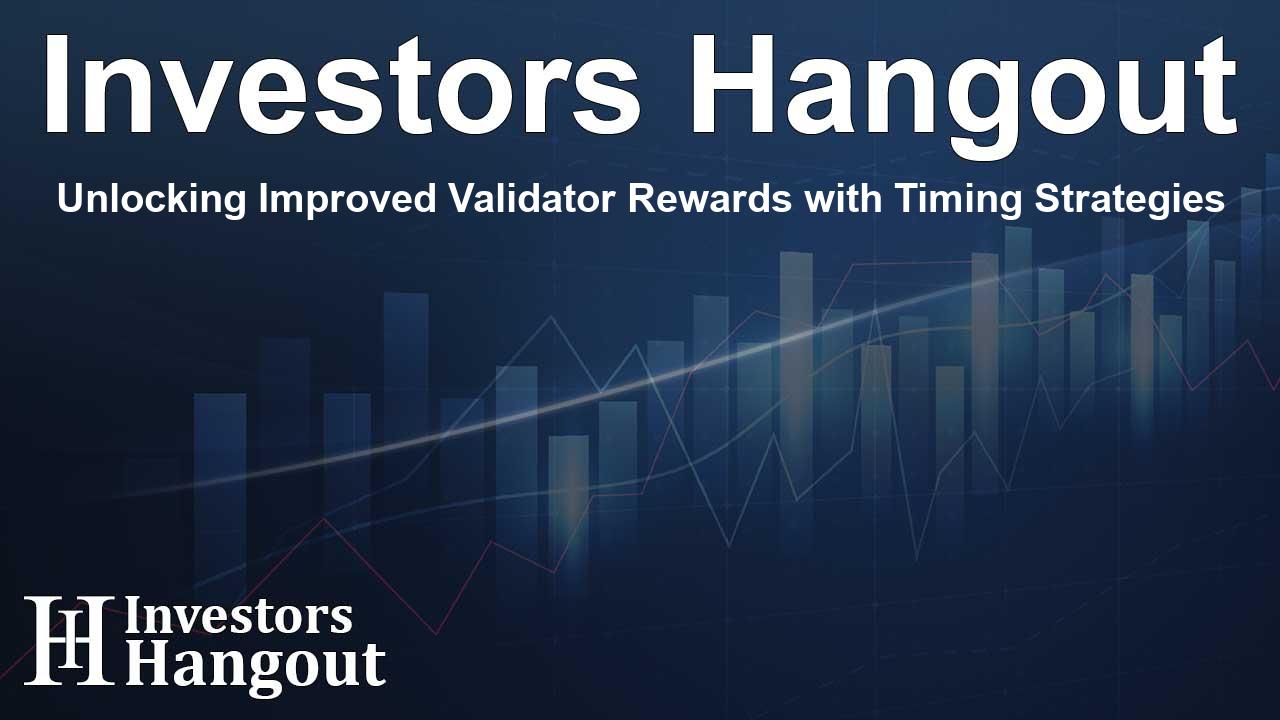Unlocking Improved Validator Rewards with Timing Strategies

Understanding Timing Games for Solana Validators
Recent studies indicate that leveraging "timing games," which involve intentional slot delays alongside latency optimization, can significantly enhance validator rewards for Solana validators. According to a thorough performance analysis, rewards can rise by up to 3% annually.
The Challenge to Previous Assumptions
This groundbreaking analysis poses a challenge to statements made by Solana's co-founder, who previously argued that incentives for such timing strategies were inadequate. With fresh insights from independent research, the importance of these methods is increasingly acknowledged.
The Impact of Timing Games on Rewards
The analysis revealed that when combining timing games with performance optimization, an uplift of 27 basis points in annualized rewards is achievable, largely due to improved MEV extraction and better fee capture. On their own, timing games produced an 8-basis-point increase, while optimizations excluding slot delays contributed an additional 12 basis points to overall rewards.
Structural Insights into the Agave Client
Researchers have concluded that these gains stem not from any vulnerabilities within the protocol itself but rather reflect a structural inefficiency found in the Agave client's transaction scheduling processes. Interestingly, an alternative validator client, Firedancer, demonstrated similar efficiency in block packing without relying on slot delays, further highlighting the nature of the inefficiency.
The Strategic Necessity of Timing Games
The report emphasizes that incorporating timing strategies has evolved into a vital necessity for certain operators within the Solana ecosystem. As participants adapt to these techniques, the benchmark for anticipated returns rises, making latency-sensitive infrastructure increasingly common across the network.
Consequences of Non-Adaptation
Without appropriate adjustments in reward distributions or improvements in client performance, there is a risk that timing manipulation could become standard practice. This feedback loop may create a competitive landscape where only the operators employing these strategies can boost their returns effectively.
Effects on Solana's Transaction Efficiency
Moreover, the use of slot delays doesn't only affect revenue but also influences Solana's effective inflation rate. By packing more transactions per block, it leads to a slight increase in transactions per second, benefiting subsequent block leaders while enhancing the overall efficiency of the scheduler.
Recommendations for Improvement
In light of the findings, researchers recommend modifications to reward frameworks. These could include methods such as pooling and proportional redistribution, which could mitigate the existing incentives for timing manipulations. Engineering fixes to enhance Agave's packing logic might also be necessary.
The Future of Validators on Solana
Should the current inefficiencies remain unaddressed, the validator landscape may increasingly favor those who adeptly exploit these variations in performance. Embracing these strategies by all operators could lead to a more balanced playing field.
Frequently Asked Questions
What are timing games in the context of Solana validators?
Timing games refer to strategic delays in processing transactions to optimize validator rewards on the Solana blockchain.
How much can validator rewards increase through these strategies?
Validator rewards can see an increase of up to 3% annually when effectively employing timing strategies.
What was the primary finding of the recent study?
The study indicated that combining timing games with optimization leads to a notable uplift in annualized rewards, enhancing the efficiency of validators.
Why is the Agave client's inefficiency significant?
The inefficiency in Agave's transaction scheduling presents a structural issue that allows for these rewards to be manipulated through timing games.
What recommendations were made for improving the Solana validator ecosystem?
Suggestions include enhancing reward mechanisms and engineering fixes to eliminate incentives for timing manipulation, fostering a fairer environment for all validators.
About The Author
Contact Addison Perry privately here. Or send an email with ATTN: Addison Perry as the subject to contact@investorshangout.com.
About Investors Hangout
Investors Hangout is a leading online stock forum for financial discussion and learning, offering a wide range of free tools and resources. It draws in traders of all levels, who exchange market knowledge, investigate trading tactics, and keep an eye on industry developments in real time. Featuring financial articles, stock message boards, quotes, charts, company profiles, and live news updates. Through cooperative learning and a wealth of informational resources, it helps users from novices creating their first portfolios to experts honing their techniques. Join Investors Hangout today: https://investorshangout.com/
The content of this article is based on factual, publicly available information and does not represent legal, financial, or investment advice. Investors Hangout does not offer financial advice, and the author is not a licensed financial advisor. Consult a qualified advisor before making any financial or investment decisions based on this article. This article should not be considered advice to purchase, sell, or hold any securities or other investments. If any of the material provided here is inaccurate, please contact us for corrections.
